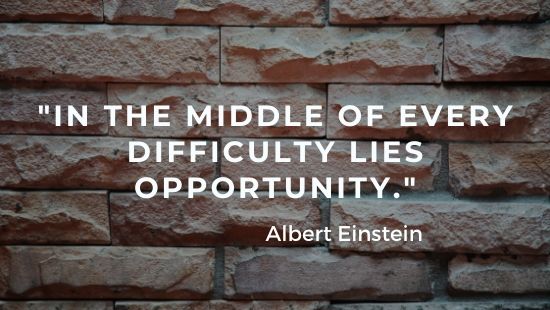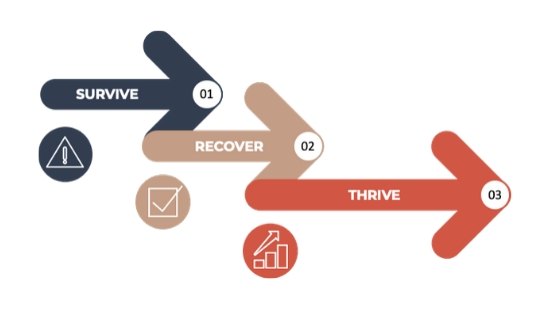Idea In Brief: With so many uncertainties, planning may seem like an impossible task now. It’s easy to feel blocked to any possibilities and get stuck in overwhelm. That’s precisely why we need strategic planning more than ever to determine how we can 1) survive, 2) recover, and 3) thrive. There will be a post-coronavirus reality, and now is the perfect time to determine how to strengthen and position your business for success. But we’ll need to make a few changes to both the process and tone we use for planning to make it work.
(3 Minute Read)
For many of my clients, this is usually the time of year strategic planning begins. We assess opportunities, evaluate the competitive landscape, identify goals, and refine short-term and long term strategies. But what about now?
How can you plan when the world is on hold, and so much is uncertain?
With so many uncertainties, planning may seem like an impossible task. But let’s be clear: there are always unknowns even on good days. The difference is, on those days, we think like we have a good handle on them, which makes us feel better and, consequently, more open to ideas, innovation, and possibilities.
Right now, it’s easy to feel blocked to any possibilities and get stuck in a loop of overwhelm. That’s precisely why we need strategic planning more than ever to determine how we can:
Survive
Recover
Thrive
There’s always opportunity in adversity, but we do have to be intentional and clearheaded to find it. In a crisis, the loss of power or control is debilitating. The beautiful thing about planning is you give employees power back by engaging them in planning the company’s survival and recovery.
There will be a post-coronavirus reality, and now is the perfect time to determine how to strengthen and position your business for success.
We’ll need to make a few changes to both the process and the tone we use in strategic planning this time around to make this work.
The New Planning Phases
There might be great opportunities on the other side of the crisis, but the business has to survive it first. I’d offer you consider approaching your planning by looking at in three phases: survive, recover, and thrive.
Survive
This is where we all are now, and we certainly need to put an abundance of focus on how we survive the next nine months. Some of the challenges might look like:
- How do we keep our employees safe and employed?
- How do we continue to serve our customers?
- What discretionary costs can we delay?
- Assuming little to no revenue for three months, how do we secure the financing to keep the business going?
Note: In this survival phase, don’t miss out on the benefit of engaging frontline and lower-level employees in the planning as much as possible. We often overlook them in the typical strat planning process, yet these groups are closer to the customer and closest to the daily operations of the business. They have good ideas, and you need them.
Recover
In this phase, your business has survived but probably looks different than it did before. Now that you’re in the state of new normal, planning shifts to strengthening the company and positioning it for growth. Consider:
- How can we become more resilient?
- How can we better serve our customers
- What are the highest ROI opportunities?
Thrive
This phase is more in line with the typical strat planning where you look at how you will take your business to the next level and what strategic choices you will make. Consider some version of these basic questions:
- What is the overarching purpose of your business?
- In what markets will you choose to compete?
- How will you win?
- What capabilities must be in place, and how will you acquire them?
Focused Teams
I’d recommend you assign different teams responsible for the Survive phase and the Recover/Thrive phase. They require very different mindsets and skillsets. It’s impossible to be clearheaded on strategic opportunities when you are focused on survival.
Tone
Regardless of what you might do or not do this year in terms of strat planning, being mindful of the tone you use in communications will go a long way. Empathy toward employees and the sacrifices they have made and will continue to make is paramount.

The coronavirus crisis has upended our lives and our businesses in ways we can’t fully predict. Planning won’t guarantee anything, but it does provide the opportunity to empower employees to focus energy on the light at the end of the tunnel.
Please stay safe and be well.



Outstanding practical advice Adriana!
This is spot on!